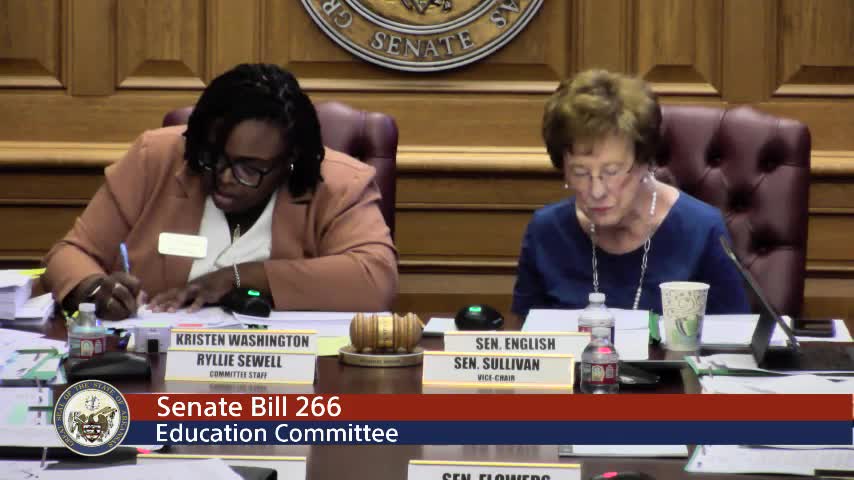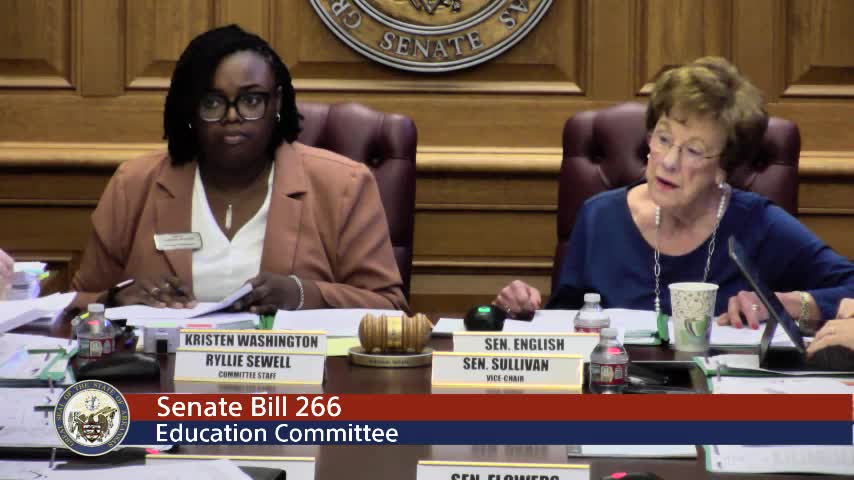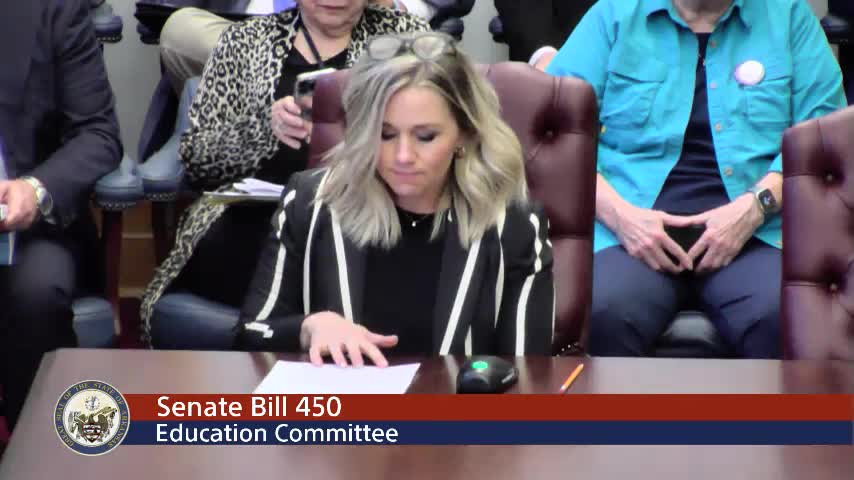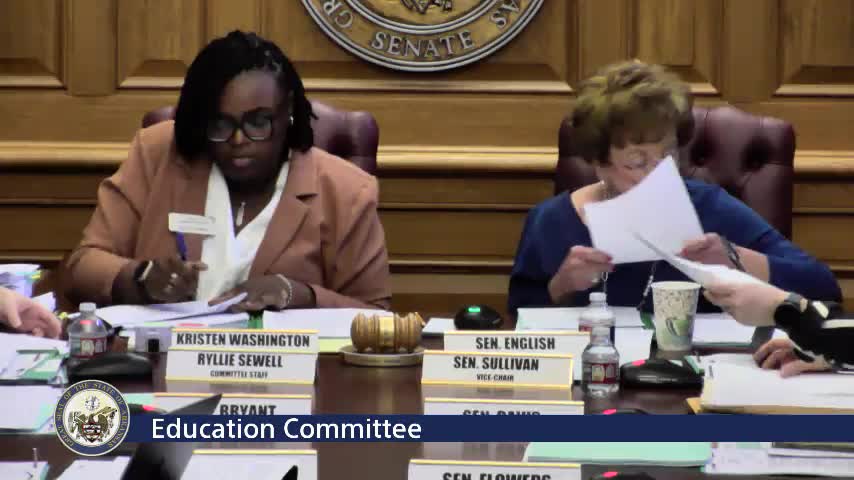Article not found
This article is no longer available. But don't worry—we've gathered other articles that discuss the same topic.

Committee OKs change to virtual‑school testing rules allowing remote proctoring without continuous adult presence

Committee addresses student‑mentor bill; sponsors frame measure as codifying background checks

Committee approves fetal‑development education bill after brief Q&A

